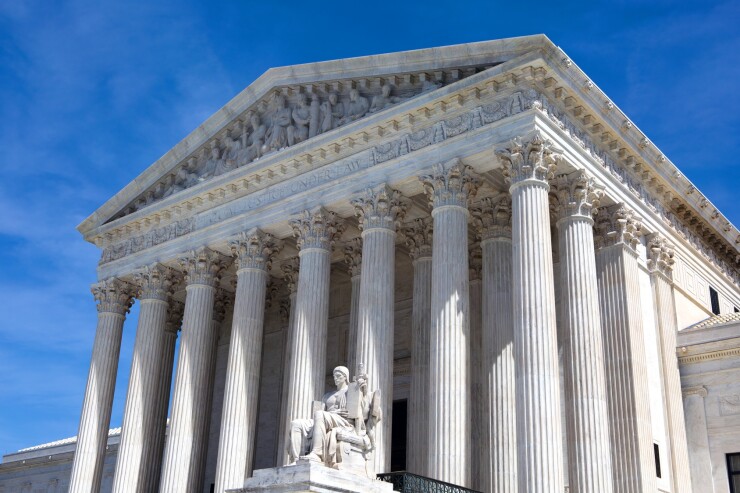The Supreme Court Wednesday heard oral arguments in Zubik v. Burwell, a case that hopes to clarify how religious nonprofits will be expected to comply with the Affordable Care Act’s contraceptive-coverage mandate requirements. While only a small sector of employers will be impacted by the coming decision, a ruling in favor of the petitioner could invite future challenges to the ACA’s coverage mandates, experts predict.

At issue is whether the Department of Health and Human Services’ guidelines under the Affordable Care Act’s contraceptive-coverage mandate requirements and a subsequent accommodation for some employers violate the Religious Freedom Restoration Act of 1993 by forcing religious nonprofits to act in violation of their religious beliefs.
During Wednesday’s arguments the justices of the divided Supreme Court remained fairly partisan, according to courtroom insiders, but there was no clear winner and the outcome is still questionable for both sides.
Of particular note for implications to employers and their advisers, however, were deliberations about what a ruling in favor of the petitioner could mean to the future of the health care reform law.
“It wouldn’t surprise anyone if we had a 4-4 decision,” says Steve Friedman, co-chair of the employee benefits and executive compensation practice group at Littler Mendelson.
However, a couple of questions from Justice Anthony Kennedy, he says, challenged the petitioner, with questions about whether a ruling against the administration and its health care reform law would create “a certain opening of the floodgates.”
The Zubik v. Buwell case “is not going to be something that affects most employers but it is an issue that deals with the ACA which is of course the centerpiece of the President’s domestic agenda and it creates the possibility that there could be further challenges and those issues in and of themselves will affect employers,” Friedman says.
“I was more certain going into the arguments that I thought the government was going to win this one, but now I’m not so sure because I really felt like the justices were hard on both sides and brought up some really interesting points,” says Amy Gordon, co-chair of McDermott Will & Emery’s health and welfare plan affinity group.
The outcome of this decision should hopefully answer three questions, she says. First, do HHS’s guidelines satisfy the RFRA’s test for overriding religious objections; second, do HHS’s guidelines advance a compelling government interest; and third, is the government using the least restrictive means to advance that interest?
Similar issues were heard by the Supreme Court in the Burwell v. Hobby Lobby, Inc. case, which ended with a 5-4 victory in favor of Hobby Lobby.
The Court held that requiring the plaintiffs, which were closely held for-profit corporations, to comply with the contraception mandate violates the RFRA. The Obama administration later allowed for an exemption to the mandate for certain religious and non-profits, which offered a workaround that would still provide contraceptive coverage for employees of those companies. These employers are required to file a form with the government self-certifying that they are exempt from the mandate based on religious objection.
[The plaintiffs] in the current case “are saying that ‘even though you’ve given us an accommodation, it’s still objectionable under our religious freedom,” Gordon says.
"In Hobby Lobby the justices acknowledged that this contraceptive mandate wasn’t in furtherance of a compelling gov’t interest. But I didn’t feel like they were necessarily 100% on board with that this time."
“In Hobby Lobby the justices acknowledged that this contraceptive mandate wasn’t in furtherance of a compelling government interest. But I didn’t feel like they were necessarily 100% on board with that this time,” Gordon says about the Zubik v. Burwell case.
“I think it’s pretty clear that if you’re a non-profit religious organization and you choose not to fill out the form, then your employees are not going to be offered this contraceptive care and that’s problematic,” says Gordon. “So I think you really have to wait and see whether the justices say it’s okay to not fill out the form. But I would instruct non-profit religious organizations at this point — particularly if they don’t object to filling out the form — to fill out the form. Because that form is what facilitates those individuals being able to get the care.”
The mandate has been upheld by eight of the nation’s regional appeals courts that have decided the issue and overturned in one.
The justices could also call for the case to be re-argued when the court has its full nine members.





